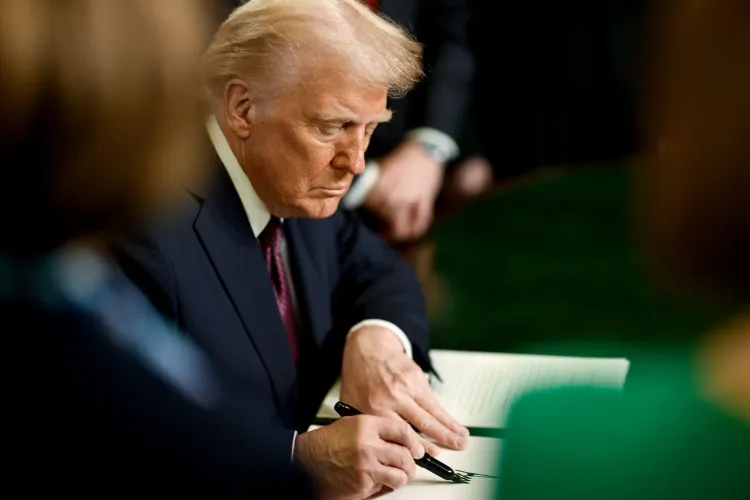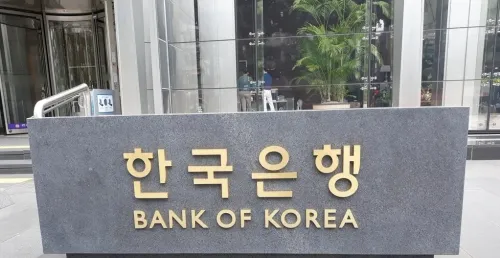Has Donald Trump Reaffirmed a 10% Baseline Tariff?

Synopsis
Key Takeaways
- 10% baseline tariff on U.S. imports established.
- Potential for exceptions based on trade negotiations.
- Ongoing discussions with South Korea and other nations.
- Concerns regarding China and Russia cooperation impacting global security.
- Future trade deals anticipated.
Washington, May 10 (NationPress) US President Donald Trump has reiterated his administration's baseline tariff of 10 percent on U.S. imports, while suggesting that there could be an exception for certain countries, such as South Korea, that aim to mitigate the effects of the new U.S. tariffs.
Trump addressed inquiries regarding the permanence of the baseline tariff, even if other nations propose zero tariffs on U.S. exports for the sake of reciprocity. He stated, "You will always have a baseline. There could be an exception at some point. We will see if someone does something exceptional for us," during a press interaction at the White House after signing executive orders, as reported by the Yonhap News Agency.
He emphasized, "Generally, there will be a minimum baseline of 10 percent, with some tariffs significantly higher—40 percent, 50 percent, and even 60 percent, as countries have imposed on the U.S. over the years."
Trump also mentioned that four or five additional trade agreements are imminent, though he did not disclose which nations would engage with the U.S. on these agreements.
The baseline tariff officially took effect on April 5, while Trump has delayed higher country-specific reciprocal tariffs, including a 25 percent tariff on South Korea, until July 8 to facilitate negotiations concerning tariff and non-tariff barriers.
In a related context, a spokesperson from the U.S. State Department indicated that ongoing collaboration between China and Russia poses a risk to the safety, security, and prosperity of the United States and its allies, following a joint statement from the leaders of both countries in defense of North Korea.
On Thursday, Chinese President Xi Jinping and Russian President Vladimir Putin issued a summit statement urging relevant countries to discard unilateral coercive measures and military pressure against North Korea.
The spokesperson reiterated, "As President Trump has indicated, the ongoing cooperation between these two nuclear powers will exacerbate global instability and diminish the safety, security, and prosperity of the United States and other nations."










